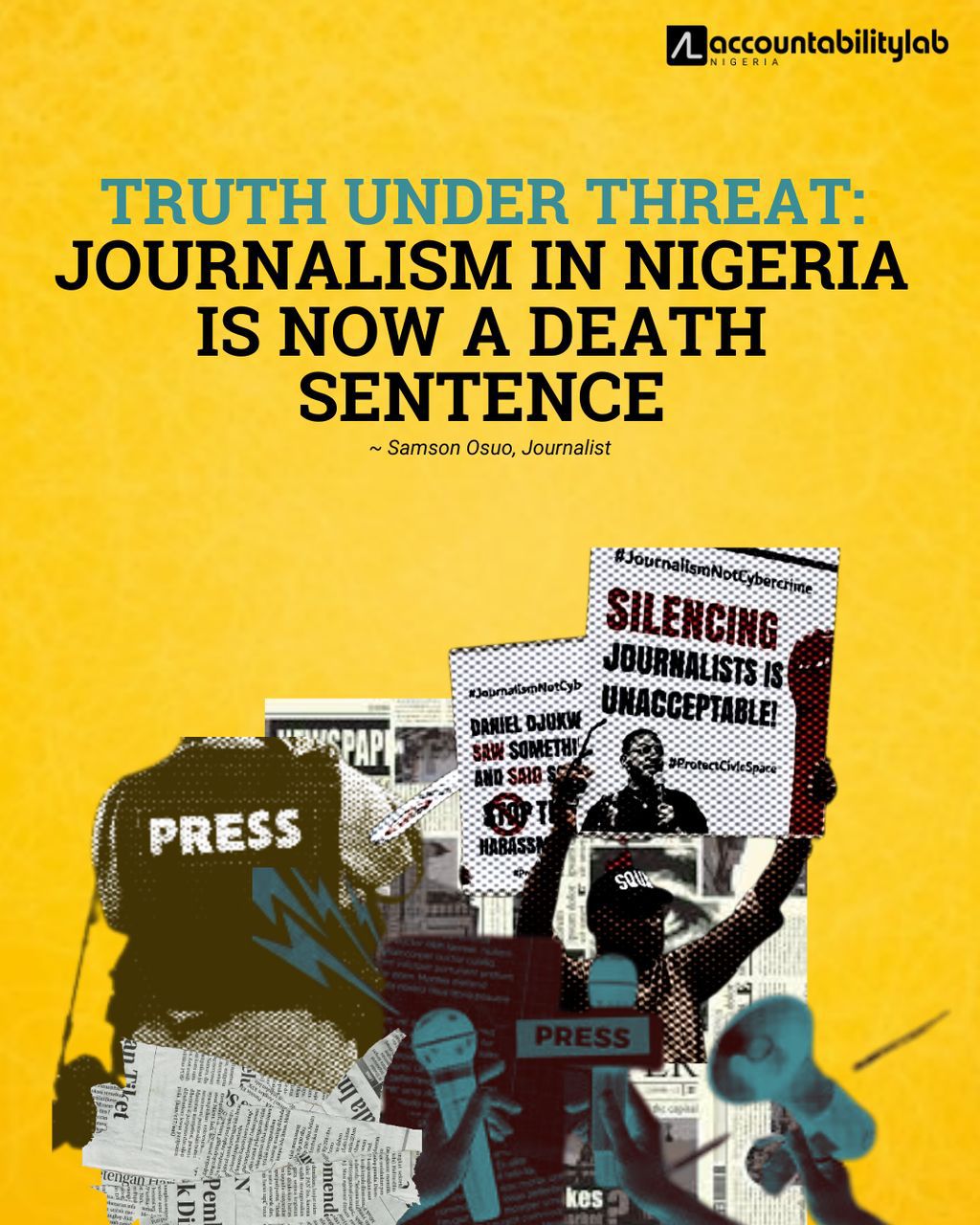NEWS
May 21, 2025

IN BRIEF
”You’re the one who wrote that story, right? Let me advise you. You have a family. If you die today, your wife will be a widow, and your children will suffer. Nobody will care, not the Nigerian government, not the Nasarawa State government”. ‘’I’ll never forget what I went through as a journalist. After one of the governors visited the Emir’s palace in Lafia, an incident occurred. Myself and two other colleagues worked on and filed a report on the [...]
SHARE
”You’re the one who wrote that story, right? Let me advise you. You have a family. If you die today, your wife will be a widow, and your children will suffer. Nobody will care, not the Nigerian government, not the Nasarawa State government”.
‘’I’ll never forget what I went through as a journalist. After one of the governors visited the Emir’s palace in Lafia, an incident occurred. Myself and two other colleagues worked on and filed a report on the incident. I was reporting for The Post Express at the time. The next morning, my version of the story appeared on the front page and strangely, the other two reports were not published. That morning, I went ahead and checked the papers at the newsstand, just as we always did. As soon as I got there, the same colleague who initially brought the story turned on me. He angrily questioned why I had reported it and accused me of acting prematurely.
Before I could make sense of what was happening, the Department of State Services (DSS) came after me. I had to flee Lafia for my safety; I took refuge at a friend’s place outside the city. I stayed in hiding for three months. On rare occasions, I would sneak into Lafia at night to handle urgent matters, visit my family and then leave again before dawn. It was only through the intervention of the leadership of our Correspondents’ Chapel that the matter was eventually “resolved.” They met with the state DSS director through another officer. Eventually, they reached out to me, even sending a car to pick me up from my hideout in a community in Nasarawa.
By the time we got to the DSS office, they had decided to let it go, but the message I received there was quite scary. The DSS director told me, “You’re the one who wrote that story, right? Let me advise you. You have a family. If you die today, your wife will be a widow, and your children will suffer. Nobody will care, not the Nigerian government, not the Nasarawa State government. So next time, be more careful about what you report.” Then he dismissed me. That experience left a deep scar. All I did was report the truth. But I was treated like a criminal, forced into hiding, and warned that my life was disposable. It’s a stark reminder of how fragile press freedom can be in Nigeria and how simply doing your job as a journalist can put your life, and your family’s future, at risk.’’
